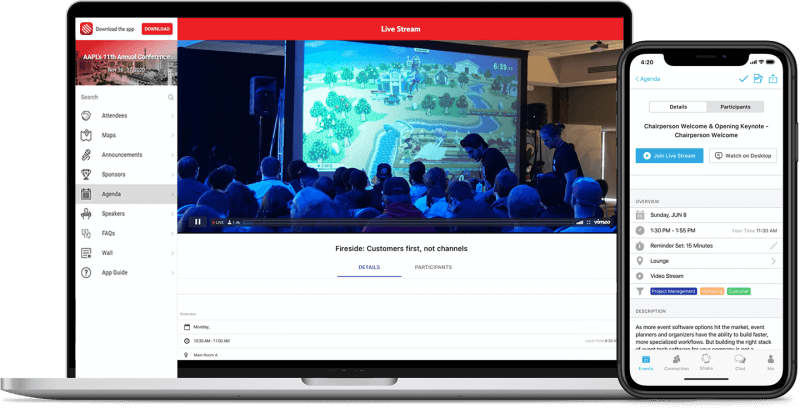What You Need to Know and What you can do
In 2008, the United States Congress passed the Safe and Fair Enforcement for Mortgage Licensing Act (SAFE Act), which required all state regulators to regulate mortgage loan originators who originated consumer loans secured by 1-4 unit residential properties (“Dwelling”). The states were empowered to legislate more restrictive licensing requirements if they desired. To date, ten states, mostly in the western region of the United States, require a mortgage lender license to make a business purpose loan secured by a Dwelling and the remaining forty do not. Utah was the most recent state to start requiring a license for originating a business purpose loans when secured by a Dwelling when it passed legislation last year.
Take three minutes to help set AAPL’s annual legislative priorities.
New Legislation
The Florida legislature kicked off its legislative session by introducing Florida Senate Bill 894 and House Bill 935, legislation that could cover private mortgage lenders. The bills, introduced by Sen. Rene Garcia (R-Miami) and Rep. Jeanette Nunes (R-Miami), would eliminate a longstanding business purpose exemption for loans secured by a Dwelling.
On January 18, the bill passed the House Insurance and Banking Subcommittee with a 13-1 vote in favor. On January 24, the House Commerce Committee passed the bill on a unanimous vote. The Senate similarly passed the bill on a unanimous vote in the Senate Banking and Insurance committee on January 23. The bills are expected to move through the Florida legislature and have strong bipartisan support.
An almost identical bill previously passed through the legislature in May 2017, but was ultimately vetoed by Governor Scott in June. Governor Scott issued a letter at the time stating that the regulation “would make Florida one of the most restrictive states in the nation in the residential mortgage lending arena.” It is unclear whether the new bills with their limited exemptions would sufficiently address Governor Scott’s concerns of over-regulation.
Florida has been one of the more interesting states from a mortgage licensing perspective. For example, a mortgage lender license is already necessary to make a business purpose loan secured by commercial real estate and 5-or-more unit multifamily residential property if the borrower or guarantor is an individual, or if the lender is considered a non-institutional investor.
If the bills become law, they would empower the state Office of Financial Regulation to regulate mortgage loans made for business purposes, require brokers of these loans to be licensed, and allow examination of firms offering or making private loans.
To obtain a mortgage lender license the lender must produce audited financials documenting net worth of at least $63,000. Further, any control person of the company must be fingerprinted and undergo FBI and Florida State background checks as well as provide a credit report, among other requirements. The audited financial requirement alone will have a significant chilling effect due to the prohibitive costs of hiring an accounting firm and will drastically reduce the number of lenders capable of making mortgage loans in the state.
AAPL and its General Counsel Geraci LLP’s Position
It is too soon to tell if this is a case of “how goes Florida, so goes the rest of the country” situation, but these developments should, at a minimum, alarm those in the private lending industry. This bill significantly impacts how brokers and lenders will operate under Florida law.
Many association members make loans in the state of Florida and many lenders will assuredly choose not to become licensed due to the extensive administrative process. Further, all neighboring states including Alabama, Georgia, Tennessee, North and South Carolina all exempt business purpose loans from licensing requirements. Ultimately if the bills become law, the state of Florida which is going through a massive fix and flip resurgence should expect fewer market entrants and a corresponding increase in the cost of credit due to the lack of competition.
The legislation may be well intended but it appears to ultimately harm Florida property owners seeking a competitive mortgage loan market. There is no evidence that the licensing of lenders in the state will somehow better protect business borrowers, or whether there was a problem with unlicensed lenders in the first place. Private lenders provide much needed capital to a marketplace which is under-served by large financial institutions and this regulation appears to harm the individuals it ultimately seeks to protect by consolidating power to a few licensed parties. We agree with Governor Scott’s comments when vetoing legislation from last year as this change “would make Florida one of the most restrictive states in the nation in the residential mortgage lending arena,” which is bad for the economy of Florida and the private lending community as a whole.
>>Any association member who is making a loan in the state of Florida should make their voice heard.<<
Let the Florida legislature know that passing this bill will harm the residents they are trying to protect. Less market competition will necessarily translate to higher interest rates which only harms Florida residents. Professional business parties should be able to work with each other without significant regulatory intervention.
Share this post or this letter using the hashtags #BadforFlorida and #AAPL












Horrible concept for these bills!!!!!